The nation’s first coral gene bank will preserve, propagate and replant coral to reverse devastation from rising ocean temperatures and a rapidly spreading disease
Video courtesy of Atlantis Paradise Island.
The Bahamas has launched an aggressive national conservation initiative to address and reverse the devastating effects of warming ocean temperatures and a disease ravaging its coral reefs. The country’s first coral gene bank is operated and managed by coral experts from the Perry Institute of Marine Science. The biosecure facility opened today at Atlantis Paradise Island to house, propagate, and replant healthy coral on damaged reefs.
“Coral has become increasingly endangered over the years, but the introduction of Stony Coral Tissue Loss Disease completely changed the game and created extreme urgency to act,” said Perry Institute for Marine Science (PIMS) Executive Director Dr. Craig Dahlgren. “Transmitted among corals through direct contact and water circulation, the disease has spread to all major Bahamian islands and causes a high death rate in corals. Treatments are emerging slowly, but corals need to be rescued and isolated from the disease while these methods are perfected.”
Part of the Association of Zoos and Aquariums’ global Saving Animals from Extinction (SAFE) program, onsite management of the new bank is led by PIMS experts, including a former Bahamas Agriculture and Marine Science Institute (BAMSI) graduate and student interns from BAMSI and the University of The Bahamas, with support from marine-life experts at Atlantis.
“Our collective vision is not only to preserve coral currently under threat, but also to foster new generations of corals that, when planted, are more resilient to disease and other dangers. Longstanding support and funding from our contributors and supporters, including Disney Conservation Fund, Atlantis Paradise Island, and Atlantis Blue Project Foundation, have been essential in making this national effort possible.”
“Our investment in the Coral Gene Bank builds on Disney’s decades-long commitment to protecting coral in The Bahamas,” said Andy Stamper, Conservation Science Manager for Disney Conservation. “This facility is a vital step toward preserving biodiversity and restoring reef health for generations to come.”
The Bahamas Coral Gene Bank can accommodate up to 200 large, mature coral colonies, in addition to smaller fragments and juvenile corals. PIMS has already rescued and relocated fifteen coral species to the biosecure Gene Bank research facility. Coral fragments collected from the ocean are placed in pristine, on-site aquaria, and once stable, they grow and reproduce quickly with the aid of innovative reproduction techniques such as lunar-cycle simulations.

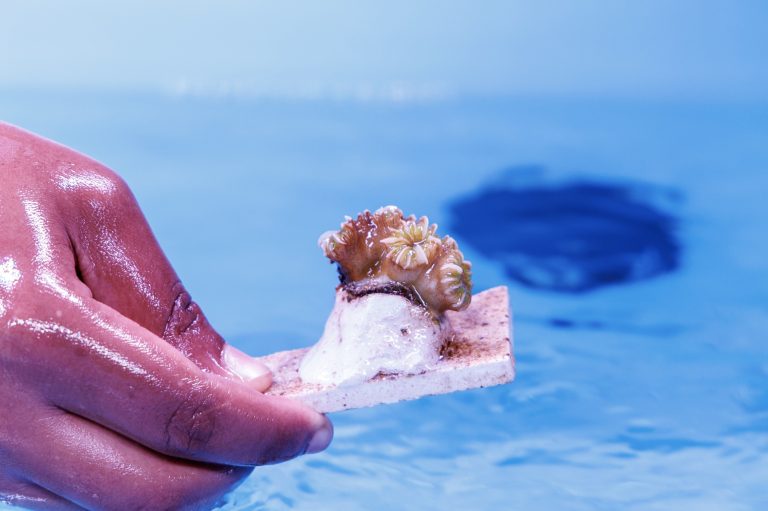
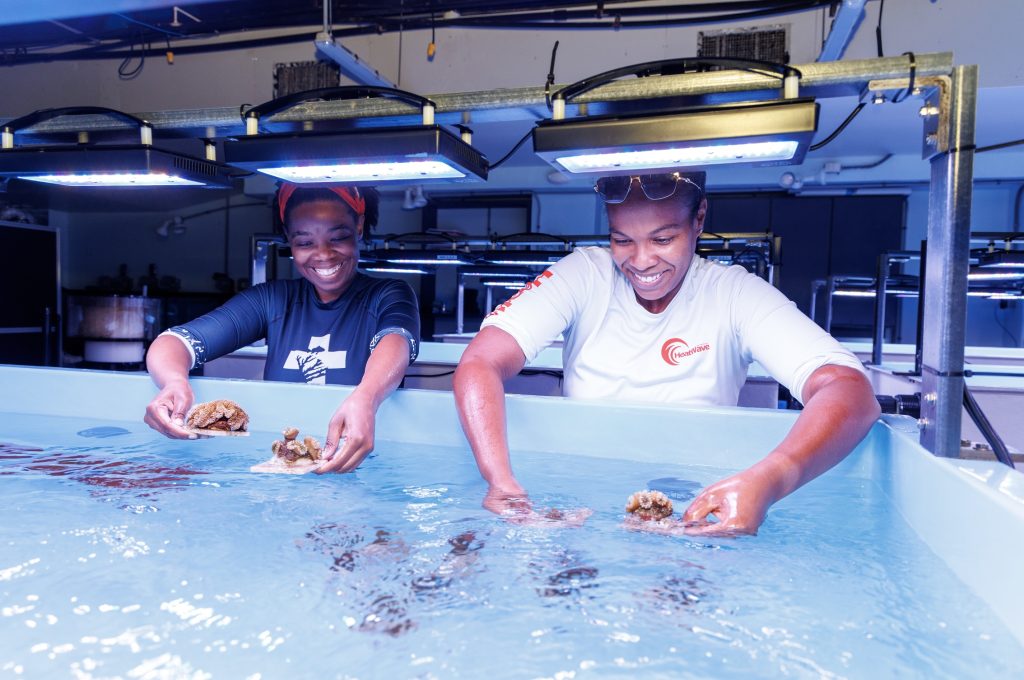
About the Perry Institute for Marine Science (PIMS)
For more than 50 years, Perry Institute for Marine Science (PIMS) has advanced ocean stewardship around the world. Guided by our vision “Thriving Seas, Empowered Communities,” our scientists pair cutting‑edge research with hands-on conservation to protect coral reefs, mangroves, fisheries, and coastal habitats while supporting sustainable livelihoods. We collaborate with governments, NGOs, schools, and forward‑thinking businesses to turn data into action—whether restoring reefs through our Reef Rescue Network, mapping coastal ecosystems with drone and photogrammetry technology, or training the next generation of marine leaders. By discovering solutions, creating opportunities, and inspiring action, PIMS works to ensure a healthy ocean for people and the planet alike. Learn more at www.perryinstitute.org.
Dive Deeper
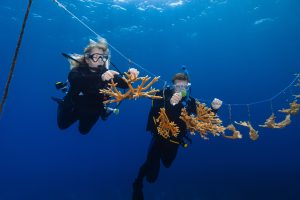
Stream2Sea Coral Care: The World’s First Reef-Positive Sunscreen
Stream2Sea Coral Care: The World’s First Reef-Positive Sunscreen | Perry Institute for Marine Science Conservation Partners Stream2Sea Coral Care: The World’s First Reef-Positive Sunscreen Discover why PIMS has partnered with

Build a Coral Reef for the Holidays | PIMS x Partanna
PIMS is partnering with Partanna to build a 100m² carbon-negative reef. Rick Fox is matching donations up to $25k. Help us build a sanctuary for the future.
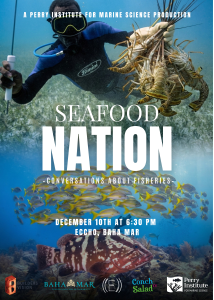
“Seafood Nation” Documentary Premiere Explores the Heart of Bahamian Culture and the Future of Fisheries
NASSAU, The Bahamas | December 5, 2025 – From the bustling stalls of Potter’s Cay to family kitchen tables across the archipelago, seafood is far more than just sustenance in
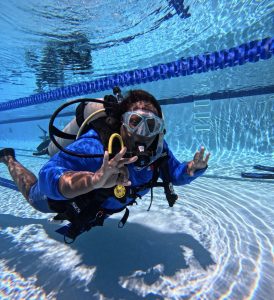
PIMS and Disney Conservation Fund Partner to Train 19 Government Divers
PIMS dive training in Nassau strengthened national coral restoration capacity across government agencies. Bahamas Dive Training Builds National Coral Restoration Capacity Last fall, between the months of September and October,
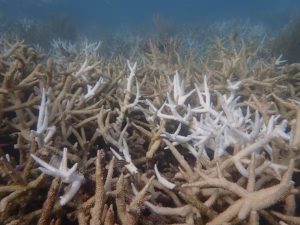
Florida’s Coral Reef Crossed a Line: What Functional Extinction Really Means for Elkhorn and Staghorn Corals
Reefs didn’t just bleach. They functionally vanished in one summer. A new Science study co-authored by researchers from the Perry Institute for Marine Science (PIMS) has found that Florida’s two
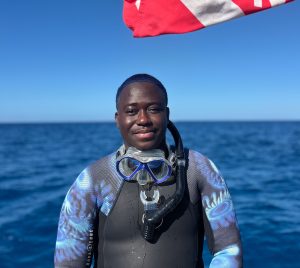
Q&A: Understanding the IDC Course at PIMS with Duran Mitchell
A former aquarist turned coral conservationist, Duran is passionate about understanding how all marine life connects. PIMS & IDC: Empowering New Dive Instructors for Marine Conservation PIMS & IDC: Empowering



